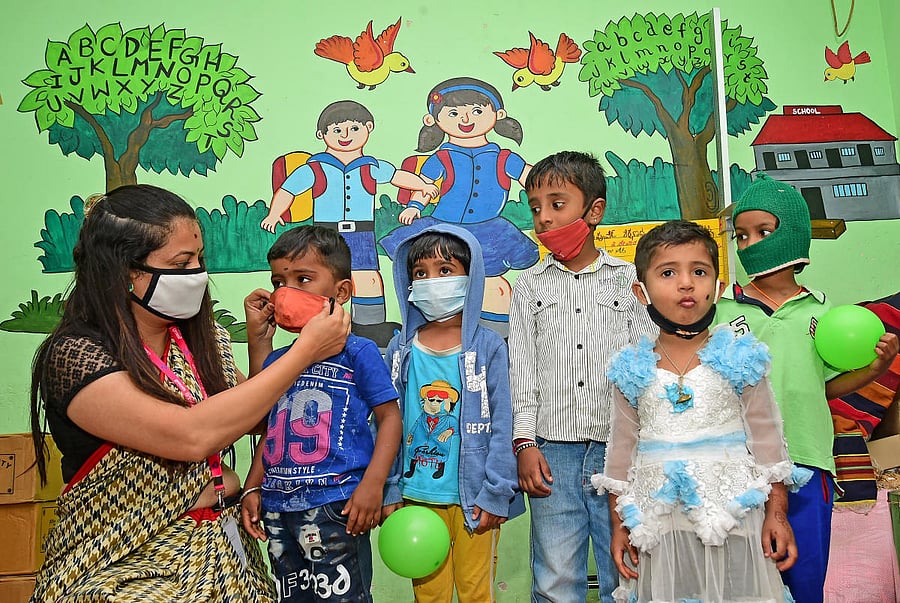
Gradually, things are starting to return to normal, even schools are allowing children to attend classes. Kishan was happy to go back to his school and his parents were also ready to send him. They still harboured some apprehension of how he would behave with classmates and also while how he would behave while commuting on the school bus. A major cause of their worry stemmed from the way he started to behave when he met other kids in the play area of their community.
They observed that he had become more silent and did not mingle with others. He stood awkwardly, fidgeting with his fingers in the playground. In one such incident, he came back to the house looking dull and withdrawn.
This incident made them realise that the prolonged lockdown had impacted their son and his interpersonal skills. They remembered that Kishan was an extrovert before the pandemic and his current behaviour caused worry.
This apprehension prompted them to check on his academic performance. Even though the continuity was maintained through online classes, Kishan lagged behind in his understanding of concepts. His parents are now considering letting him repeat the year to bridge this gap. They worry that doing this may have further repercussions on his emotions. They are now at crossroads.
What must they do to improve his emotional well-being and also academic skills without hurting him?
This is a common question among several parents now as we move on from school closures.
This story presents academicians with certain questions: If a family with resources faces these kinds of problems, then what is the status of a family with few resources? How are we going to address these issues without delay? What could be the possible interventions from the academic community and from the government?
Interventions
This learning loss wrought by the pandemic has to be addressed as early as possible. Here are a few suggestions:
We should start with a quick assessment of where our future generations stand at this point. We can make use of social workers, school counsellors and students from social sciences backgrounds to run these assessments in schools. A committee of experts can decide on the assessments. The assessment need not be elaborate but instead, be short and focused so that the evaluation can be conducted after a quick training.
A personalised approach can be adopted in mainstream education. The focus should be on the strengths, needs, skills, and interests of each student. This may prove to be difficult to manage in schools with meagre resources. This is where we could involve college and university students — engaging them in internships that focus on developing modules to bridge the gap. This suggestion will help them also realise ground realities and enable them to become more socially conscious and be better, more authentic leaders. These bridge courses and sessions can be fun-filled and activity-based to capture children’s attention.
We can also introduce the concept of big brother and big sister to India. In this scenario, children are mentored by college and university students on weekends and during vacation periods to increase the learning curve. Changes will perhaps be seen in both the groups — mentors will gain social awareness and mentees will benefit from seniors.
Allowing hybrid classrooms to continue functioning may reduce stress on children by providing flexible schedules. This will provide children with much-needed time for themselves. Government and private schools should receive aid to equip themselves with resources.Training programmes for parents on how to handle situations similar to Kishan’s parents may also be required. These training programmes can be offered to the parents and also to teachers by the social sciences faculty and by mental health professionals.
(The authors are counsellors and academicians)